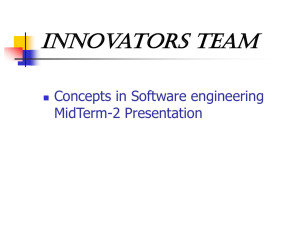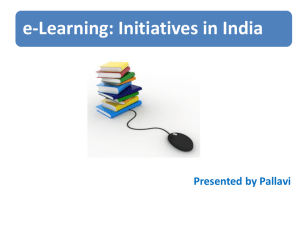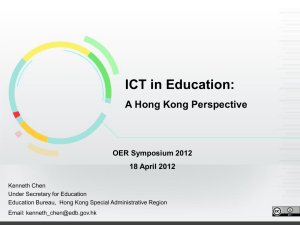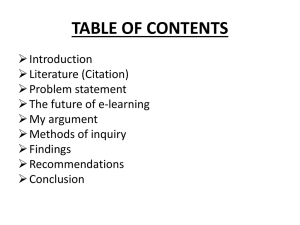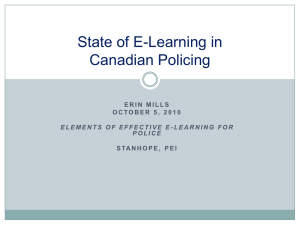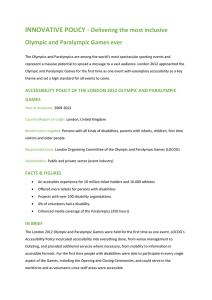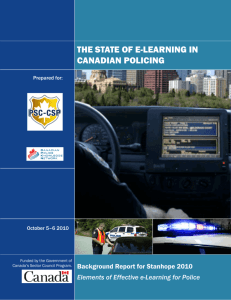NCALT - Olympics award - The eLearning Network
advertisement
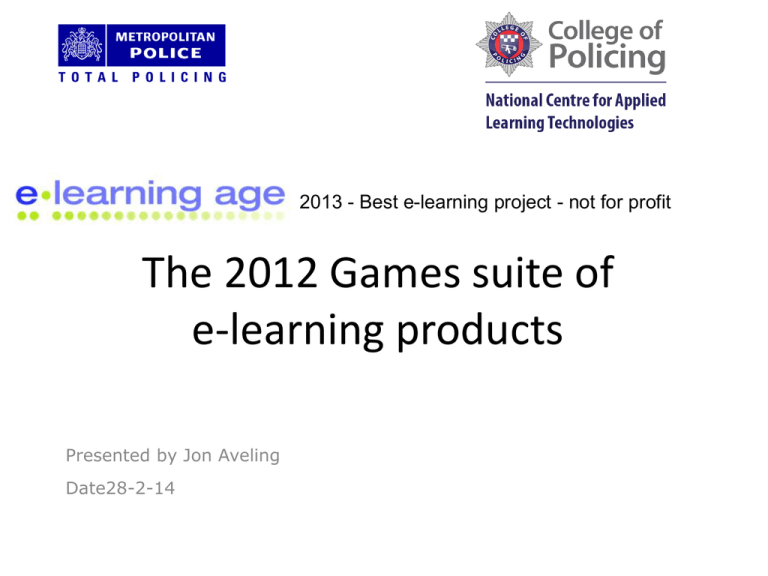
2013 - Best e-learning project - not for profit The 2012 Games suite of e-learning products Presented by Jon Aveling Date28-2-14 Introduction • Martin Bagshaw – Project Lead, Olympic Training Project • Vikesh Tailor – Producer, NCALT • Jon Aveling – NCALT Implementation Manager Overview • NCALT is a collaboration – College & MPS • E-Learning & Managed Learning Environment (MLE) • 300,000 registered users • 43 x Home Office Forces • Associate Partners Current: PSNI, BTP, MDPGA, CNC, Scottish Police Service Today I will cover • • • • • • Background to the Olympic training project Overview of the organistion Outline of our proceses in design Detail of our implementation Outline the success How this influenced the business going forward However , some background • Police IT is notoriously Cant do • E learning is delivered in spite of , not because of technology • Generation Y – Average age 27 on recuitment – Internet throughout their adult life The 2012 Games the largest peacetime safety and security operation in our history Preparing our people • • • • • • • Safety & Security Objectives Delivery (project framework) Business Case Training Strategy Training Need Planning Assumptions Implementation & Delivery Considerations The Challenges • • • • • • • • • Cultural resistance to e-learning Large numbers of stakeholders & partners Diverse user groups New LMS being rolled out midway through project Technical limitations Making the Games products standout Public disinterest towards the Games Key information changing daily Short deadlines, changing information, fixed budget, limited resources Solutions • • • • • • • Consultation User experience research Evaluation analysis LOCOG tie-in New design –improved usability & accessibility High profile figures Agile methodology Diverse audience • Numerous different user groups • Different roles = Different training needs Stakeholder liaison • Stakeholders, subject matter experts, and partners from over 75 different organisations Fire service, Ambulance service, Dorset, Airwaves, PNICC(Police National Information Coordination Centre), NOCC(National Olympic Coordination Centre), UKBA, Neighbourhood engagement, Logistics, Diversity, British Transport Police, International liaison, Public order, CBRN(Chemical, Biological, Radiological, and Nuclear), TORCH, LOCOG branding, LOCOG legal, volunteers, security, Police search, Metropolitan Police, ACPO(Association of Chief Police Officers), Specials and volunteer groups, GIS(geographic information system), Intelligence, Welfare, Demand and resource, SOCA(Serious Organised Crime Agency), Operation Podium Learning strategy 8 Modules of e-learning: 3 methods of deployment: Innovation • • • • • • • • Theme and branding Animated help popups Accessibility settings Low spec support Captions Dynamic content New screen types Media rich interaction Smart popup to encourage paced learning Interactive screens Implementation • • • • Learning required in over 50 organisations and forces Fire and ambulance also needed to utilise some products Training departments, Olympic leads, National teams The message of Sporting event with Security was Unique Spread the message and Engage • • • • Workshops to engage all police forces Regular meetings with Fire and ambulance Identification of Single contact point in each organisation Myth-busting workshops explaining how to access and complete the learning Monitor compliance • • • • • 15000 mutual aid officers Scottish forces involved 48000+ Metropolitan officers and staff 360000+ total completions of the products. Tracked and reported to the Olympic Project Evaluate Success • Enabled 361,751 tracked completions- 30% MORE than the original business case driver • 8 new modules of E-Learning delivered, on time and £85k under budget • Cost per head of £0.48 for Tri-Service Awareness e-learning • Delivered a Return On Investment of 225:1* • Deployed successfully on NCALT MLE, Moodle and the web • Reduced service desk calls, improved usability and accessibility *based on a conservative figure of £250 per equivalent class room training day 38,836 (or 10%) opted to fill in our standard evaluation form. Strongly agree/ agree (%) no opinion disagree (%) strongly disagree (%) I found this course to be of high quality. 64 23 5 2 The course met my learning needs. 57 25 8 5 E-learning was a good way for me to learn this subject. 64 19 7 5 I am confident that I will be able to apply what I have learned to improve the way I work. 55 28 7 4 statement Did it work? • Delivery to a large and diverse audience • Over 70% surveyed after E-Learning satisfied that they understood how the Games would operate and what was expected of national Policing style • Provides up-skilled officers for the future e.g. Commonwealth 2014 & G20 events • Provides assurance as scale of mutual aid* provision is unparalleled – the training provided was quality assured and monitored • A viable solution to supply the Olympic Resource gap – the required number of personnel was trained, on time and considered to be effective in Policing the Games • National interoperability through standardisation of training

